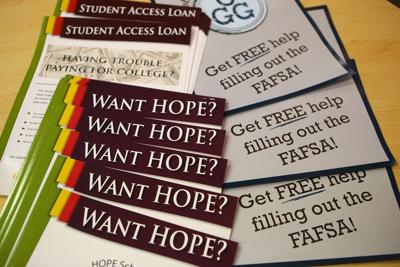These are anxious times for Louisiana students who plan to attend college in the fall and their parents. Because of changes to the Free Application for Federal Student Aid, many still don’t know what kind of aid package they will receive as college deadlines approach. That’s putting some in the uncomfortable spot of having to pay fees and deposits before they know what they’ll be able to afford.
We were pleased to hear that some colleges in Louisiana are working with students and moving enrollment deadlines back until aid can be determined. Many are going above and beyond to offer help. Financial aid officers at South Louisiana Community College and Louisiana Tech University, for example, have said that they’ve gone into high schools to work with counselors and let incoming students know they’re available. The Louisiana Office of Student Financial Assistance is also answering questions via phone call, messaging, virtual meetings or on-site visits.
Still, it’s going to be a nail-biting few months for those waiting for financial aid forms to be processed.
The problem, ironically, stems from an overhaul of the FAFSA to make it simpler.
Filling out the FAFSA is key to unlocking federal student aid such as Pell Grants, work-study and loans. Many states and colleges rely on it to award their own need-based scholarships as well. The new form was supposed to debut on Oct. 1, 2023, but due to myriad problems, it was not available until Dec. 30. Even then, the online site was plagued by glitches.
In addition to the form, the formula for calculating eligibility for student aid was also changed. The new “Student Aid Index” makes low- and moderate-income families eligible for more aid.
But that too, has been fraught with issues. In January, the U.S. Department of Education said it needed to update its calculations to include inflation in the determination of how much a family can afford. Those fixes have been made now, and the first batch of forms went to colleges mid-March.
That means students may not know until mid-April or later what their financial aid award will be. We know this puts students with the most need at the biggest disadvantage. Some could choose to delay college or sit out a semester faced with such uncertainty.
We urge families not to be discouraged and to seek out the available help. We also urge our Louisiana colleges and universities — public and private — to recognize the strain that families are facing through no fault of their own and ease the burdens on them in any way they can.
As Louisiana continually seeks ways to reduce outmigration and improve its workforce, helping students access the best educational opportunities available is crucial. If we support them now, we will reap the benefits for years to come.

